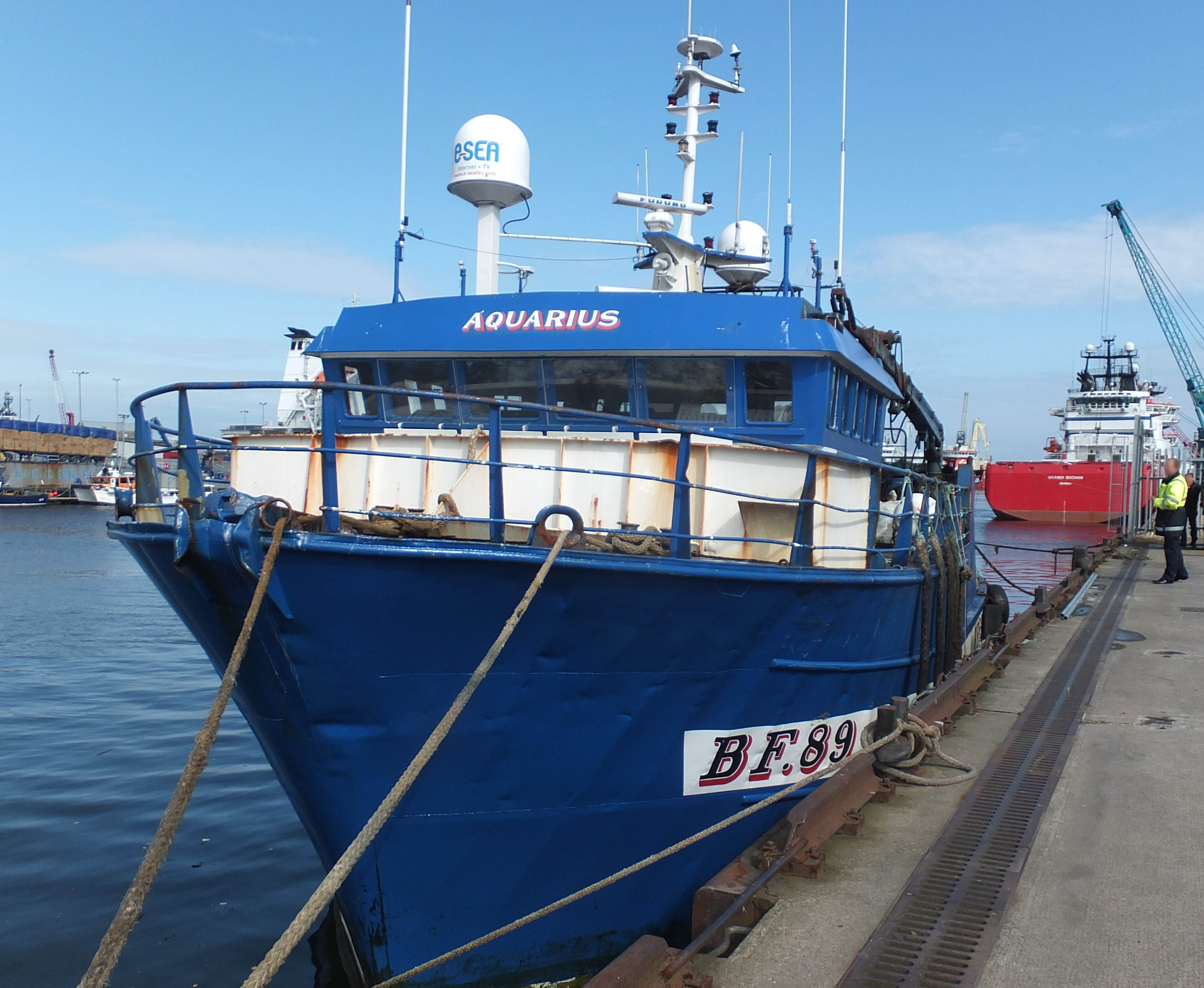Man overboard from twin rig trawler Aquarius with loss of 1 life
Location: 2 miles east of Aberdeen harbour.
Accident Investigation Report 18/2016
Investigation report into marine accident including what happened and safety lessons learned:

Summary
On 17 August 2015, a crewman from the Scottish fishing vessel Aquarius was struck violently by a trawl warp when the rope used to take the weight parted. The force of being struck catapulted the crewman overboard into the sea. He was not wearing a personal flotation device (PFD) at the time of the accident, and although he managed to tread water for at least 10 minutes, his crewmates were unable to recover him before he sank out of sight.
Statement from the Chief Inspector of Marine Accidents
This is yet another tragic example of a crew member losing his life after going overboard from a fishing vessel. The crewman did not wear a PFD when working on the open deck and his crewmates were not able to recover him before he was lost to the sea.
The MAIB investigation found that unnecessarily hazardous working practices on Aquarius were considered to be the acceptable norm by everyone, including the owners and skippers of the boat. Aquarius had been issued with multiple safety related deficiencies by the Maritime and Coastguard Agency prior to the accident, however these appeared to have made little difference to how the boat was operated.
This accident is a stark reminder of the hazards faced by fishermen at sea, but also how fishermen can reduce those hazards by giving more thought to the foreseeable risks they face on a daily basis and take positive action to reduce the likelihood of accidents occurring. In this way, relatively simple changes to the way fishermen work will help to ensure that they come home to their family safely.
Safety lessons
- the wearing of a PFD whilst working on deck will increase the chance of survival should anyone fall, be thrown or dragged overboard accidentally
- the poor safety management record of Aquarius indicated the lack of a pro-active safety culture, which then allowed dangerous working practices
- the crew were not properly prepared to deal with any emergency situation onboard Aquarius. They had not undertaken any regular safety drills, including any actions to be undertaken in the event of a manoverboard, nor had they practiced the recovery of a casualty from the sea.
- the risk of fatigue was high as the crew worked long hours and their hours of rest were not being monitored or recorded
Recommendations
A series of safety recommendations have been made to the boat’s owners (2016/141 and 2016/142), the Maritime and Coastguard Agency (2016/139 and 2016/140), and the employment agency for the Ghanaian crew (2016/143). These are intended to improve the onboard safety management of Aquarius and similar fishing vessels, as well as to assist the Maritime and Coastguard Agency’s surveyors to identify problem vessels.
Related publications
A safety flyer highlighting a number of the safety issues was produced for this report.